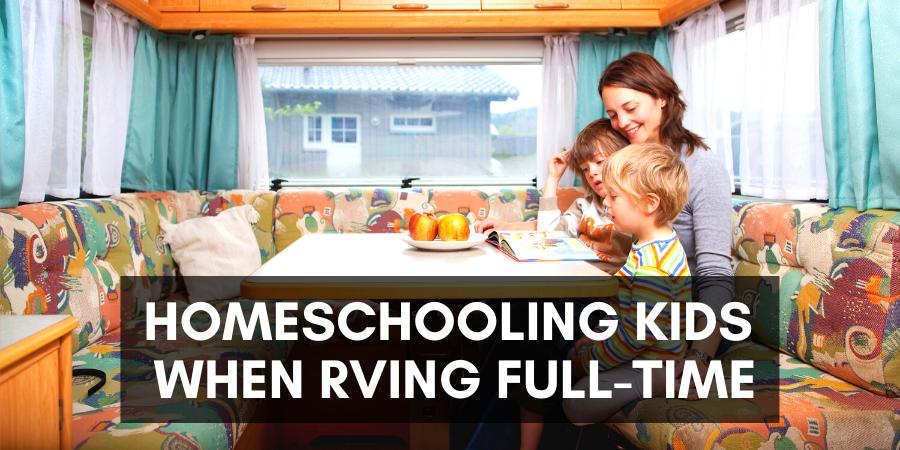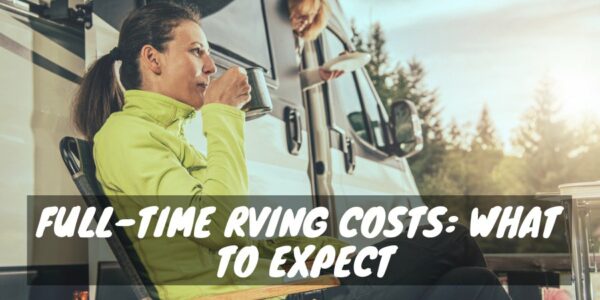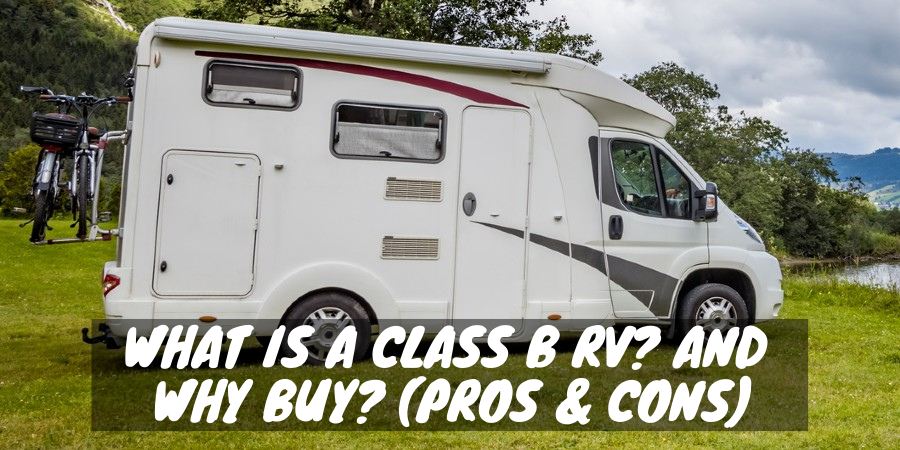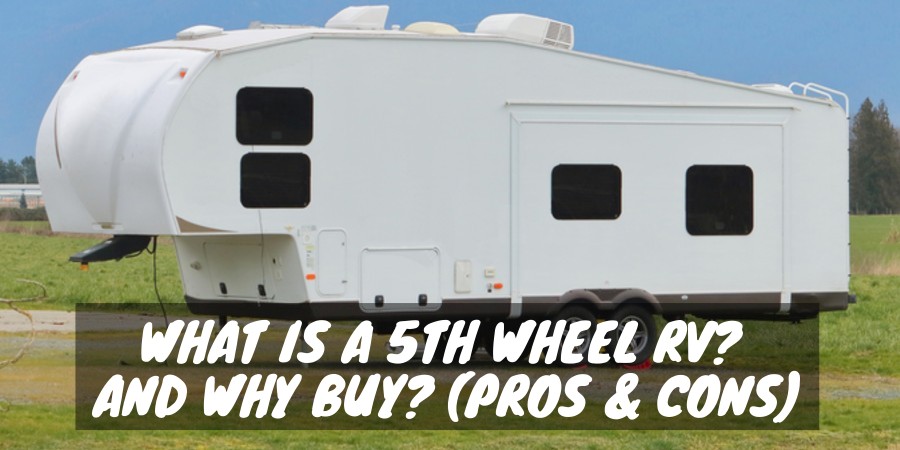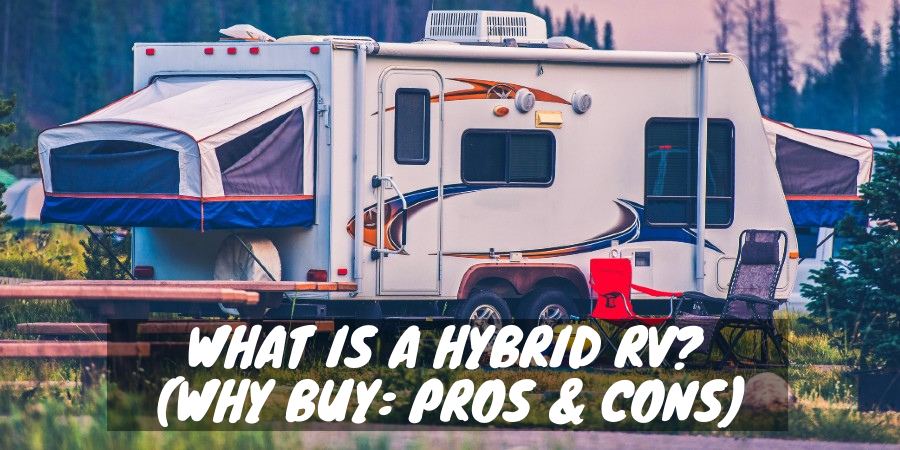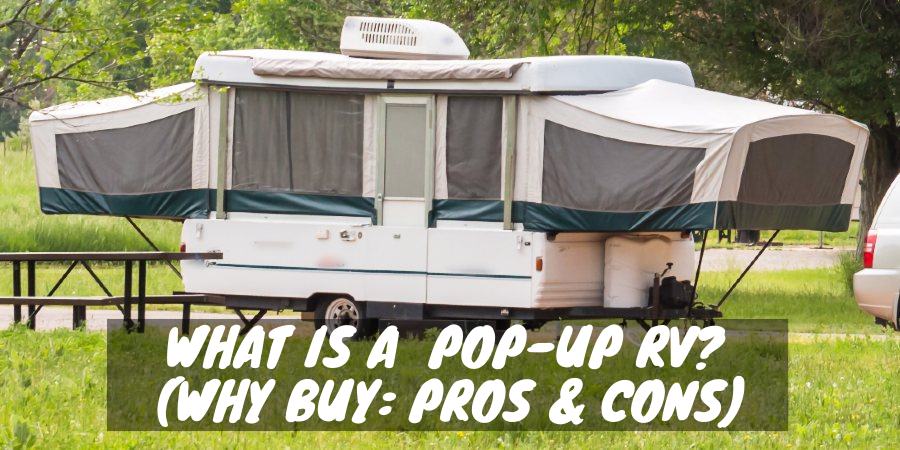Full-time RV families are on the rise, but what’s it like to school children while constantly traveling?
Having kids keep up with their peers when you RV full-time doesn’t have to be impossible. You can use your travels as an advantage to keep children engaged in their studies with real-time, hands-on experiences.
To help you understand what it’s really like for full-time RVers to school their kids, I gathered the latest data, polled RV-schooling families, and put all the details right here.
If the life of RV travel is calling you, but you worry your kids may fall behind in their education, this is the article you need to read!
Full-Time RV Families – How Common Are They?

The term “road schooling” is what many full-time RVing families call teaching their kids, and the number of pupils keeps growing every year.
Recent statistics state that over one million full-time RVers are on the road, with an estimated 30 percent of them traveling with school-age children.
Nomadic full-time RVers must rely on various homeschooling curriculums to teach their children while traveling around the US.
In all my years of full-time RVing, it wasn’t unusual to see families who road-schooled their kids, even in “snowbird” locations. In fact, many RV families partake in workamping opportunities, so the parents can remain near the kids all day while still bringing in an income.
In all honesty, I see a range of parental teaching styles, from strict daily school schedules and online self-study programs to allowing kids to roam and learn through daily interactions with other people and hands-on experiences.
What I do see across the board is that roadschooled kids seemed very well-rounded. Most children have good communication and friend-making skills, an inquisitive demeanor, have a better understanding of geography, and are more willing than the average child to participate in activities or help around their RV or the campground.
Travel does wonders for kids and adults, so combining them by exploring the country full-time as a family and schooling on the road doesn’t mean your kids will fall behind on their learning. In fact, the results can show just the opposite!
RV Schooling Curriculums
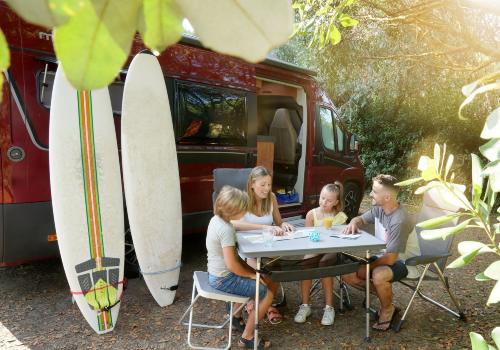
Most US states require children to have regular school programming until they reach at least age 16.
Roadschooling parents will have to track their kids’ progress through their studies and prove the coursework is complete.
Each state and schooling curriculum will have different ways to hold parents accountable for the learning and may test to see where kids stand against their peers.
But, it’s helpful to know the state you use for a home residency will determine how roadschooling-friendly they are.
For example, Texas and Florida are two popular states for RV full-timers to choose for residency. Both states offer online K-12 courses.
Texas has no requirements for road school reporting, while Florida will allow you to enroll in an umbrella school and report each child’s attendance quarterly, which isn’t a burden on parents.
Parents don’t need any teaching credentials to legally road-school their kids, but they need organizational skills to keep files for each child to show proof of course completion.
You never know when you may put your child back into the public or private school system, and having up-to-date records will make that transition much more straightforward.
Public School At-Home Program through Your State
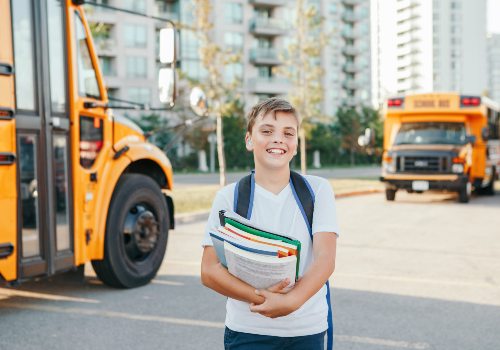
Depending on where and how you full-time RV with kids, you may be able to have a free government-funded schooling program sent to you, with all the materials and teaching plans for each grade level.
For example, if you mainly travel and have a permanent mailing address in one state, you can usually access the public school’s at-home learning program. State laws typically mandate you file a request for at-home learning so that they can track the kids in the program.
This type of RV schooling program is more structured, with deadlines to turn in work and testing at the end of each term.
Private Home Schooling Programs That Work Nationwide
Many full-time RVing families prefer to use an online schooling program as a full or complementary curriculum to teach their kids. Here are some of the programs with the highest ratings from RVing parents:
K12.com
The K12 Online Public School program has complete public school curriculums and direct access to tutors or teachers when kids need extra help.
The need for reliable internet is critical with this program, as kids must remain online for hours to complete all the coursework.
Time4Learning
Time4Learning is probably the best choice for parents who like having all the lesson plans and guidance set up for them for each grade level. The courses allow kids to do some work offline and set the pace themselves, which is helpful when fitting in learning with RV travel.
Be aware that you’ll need to keep your account active to access your child’s records, and not all learning topics are as in-depth as you may want.
The price for the PreK-8th grade program is around $20 monthly for the first child and $15 for each additional child. For 9-12 grades, the price rises to $30 a month.
First Day of Homeschool Using Time4learning! (Video)
Connections Academy
Connections Academy stresses peer socialization through different online clubs and activities so kids can form friendships while on the road.
Parents like the free courses, support networks like one-on-one counseling, and fun clubs, and it understands the needs of kids and parents who require remote learning.
The program is available in 29 states and uses certified teachers. Free coursework materials and textbooks are part of the package.
Connections Academy-Supported Schools (Video)
Khan Academy
Khan Academy is another free online program for K-12 that even offers advanced placement courses for high school-level studies.
The program keeps kids more interested by having various classes and learning methods, making it a good choice for parents trying to teach multiple kids.
There are no live or interactive studies, which some may find a downfall, but it does provide free educational resources such as SAT preparation for seniors.
Introduction to Khan Academy Kids (Video)
edX
If you’re looking for teens to get some college-level online courses, edX is the program to choose. MIT, NYU, Harvard, and other top universities host the site’s courses, so kids are challenged.
If your RVing budget is tight, many of the 2,500 self-led or instructor-led courses are free or inexpensive, with some credits transferring to college if your teen chooses to continue their education.
You will need to pay about $50 for any completion certificates to record passing coursework.
CK-12 Foundation
CK-12 offers an online curriculum with a heavy focus on STEM courses. Kids love the way the site incorporates interactive activities and games to make learning fun.
Everything, including the textbooks, is online (for desktop, laptop, or tablet) with this program, and each course digs deep into the topic for a more comprehensive learning experience. In addition, you can follow your child’s progress through their Dashboard.
Younger kids may have issues navigating the site alone, so this curriculum may be best for kids 12 and up. Writing, spelling, math, earth sciences, engineering, and more are part of the program.
Old-School RV Learning for Kids
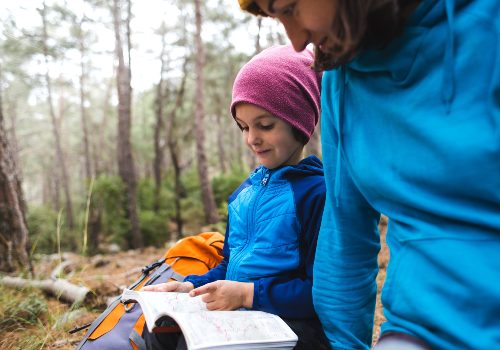
Don’t discount the value of forgoing online schooling for your kids and opting instead to go old-school by only using textbooks, workbooks, and physical pencil-to-paper coursework.
Reading actual books and filling out papers by hand increases eye-hand coordination and retention of facts and ideas that you can’t get by clicking a mouse.
You can often request free books and printed worksheets from your home state’s public school for RV learning if you explain you don’t have internet access. You can also find used textbooks at local library sales or thrift stores.
Unschooling for RV Full-Time Kids
Unschooling is gaining some ground with parents who are tired of strict learning curriculums that only focus on a few subjects.
This type of road schooling leaves kids in the driver’s seat regarding when and how they wish to learn any subject or skill. Parents can “lead” a learning experience by providing an opportunity to spark interest in their child, such as planning and budgeting for the weekly groceries or working on changing a bicycle tire.
You can check out The Unschooling Handbook to understand more about this learning style.
Unschooling has excellent benefits for RVing families, as it reduces all stress surrounding coursework and instead lets kids learn naturally through hands-on and practical life-skill experiences.
Parents need to be pretty laid back to succeed in following an unschooling program, and many choose a hybrid of this learning system and a more structured one.
Beneficial RV Roadschooling Resources
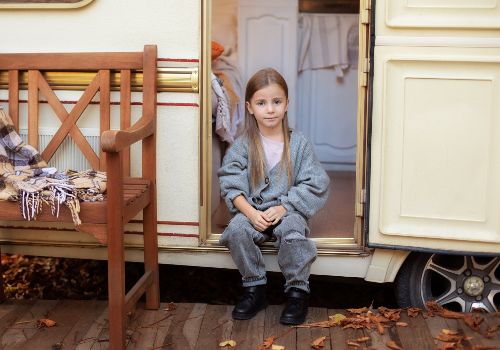
Consider buying into reciprocal membership programs to museums, zoos, state or national parks, and science centers to take advantage of your RV travels and learning opportunities.
Paying for a family membership to a participating program allows free entry to sister locations around the US, making them well worth the investment for family entertainment and learning experiences.
Another resource is joining Fulltime Families. This membership group, which charges $65 annually, provides opportunities for parents and kids to meet up with other families at field trips and events across the US.
Membership in Fulltime Families keeps growing. The community groups offer support through forums and private chats, in-person events held by branches, and valuable online articles on various topics that only full-time families face.
Fulltime Families can provide the socialization for kids and parents that may be lacking on your everyday RVing journeys.
Pros and Cons of RV Road Schooling

Roadschooling isn’t always easy or hard, but the attitude of the parents and kids will determine how well it will work for your family.
Check out these pros and cons of road schooling for RV families for a quick glimpse of the benefits and challenges you’ll encounter.
Roadschooling Pros:
- Learning flexibility
- Scheduling freedom
- Free or low-cost options available
- A wider range of learning experiences
Want to Connect With a Community of Over 1,078 RV Enthusiasts?
RVing is all about freedom and enjoying new experiences, cultures, and locations.
Schooling your kids while full-time RVing sets you free from strict school year dates like first and last days and holiday breaks that make planning traditional vacations challenging.
Every travel stop affords you and your kids a chance to learn something new, which only expands their knowledge across a broader range of topics public schools miss.
Roadschooling Cons:
- Reliable internet can pose a problem
- Must track kid’s attendance and progress
- Kids may not have the opportunity to socialize with peers or join sports teams
- Easy to let studies slip when fun adventures await
- Having space in the RV for dedicated schooling workspace/storage for supplies
I hear the biggest con of trying to school from an RV while full-timing is keeping kids focused on their coursework when there’s an abundance of new things to explore a few feet away out the camper door.
Having fast and reliable internet is another problem if you can’t afford a personal Wi-Fi hotspot.
Some parents also find it a burden to hound kids to get schoolwork done, track attendance hours, and record and store papers, tests, and progress reports.
Socializing with kids of the same age may be an issue if yours is an only child or the campgrounds you stay in attract few families. In addition, kids who excel at a sport may miss joining the school team, and RV travel can make joining a local sports club for a season impossible.
Lastly, it may be difficult to find extra room in your RV to hold books, papers, art supplies, and other items specific to schoolwork. Having a spot within your RV for kids to focus without distraction can also be an issue, especially with multiple children.
Tips for Successful RV Schooling for Kids
Things to Know About Homeschooling While Full Time RV Living (Video)
Research and Tailor Curriculums for Each Child
If possible, weed through all your roadschooling options before you start your full-time RV lifestyle. Don’t rush and commit to the first decent program you find if you’re already on the road.
Finding a good fit between the curriculum requirements and your child’s learning style will take time. Remember that your kids will fight you less on doing schoolwork when they enjoy the way they are learning.
Also, ensure you follow state guidelines for homeschooling and know what types of records you need to keep and report.
Have Proper Roadschooling Supplies
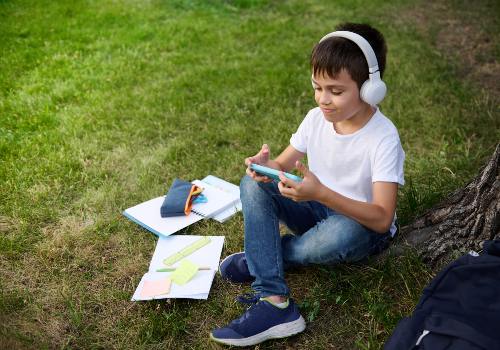
Depending on your child’s curriculum, you may need any or all of the following supplies:
- Laptop, desktop, or tablet computer
- Folders, notebooks, pens, pencils, markers, crayons, glue
- Chalk or dry-erase board and writing implements
- Textbooks, workbooks, worksheets
- Chapter books for general reading
- Printer and ink
- Craft box for projects
Keep Roadschooling Consistent
Kids love knowing what to expect each day, so keeping their RV learning on an hourly schedule or posting learning days on the calendar will help everyone stay on track.
Many RV families find it easier to keep school days to three or four a week but keep it going all year round, while others like the nine-month on, three-month off routine of traditional public schools so kids and parents get a long break.
Give Kids a Say in Their Roadschool Learning

Let the children lead on learning topics, which will keep them eager to tackle coursework. Ask them to write down their current interests and things they would like to learn more about and find classes that fill that need.
When you make your kids feel more like partners in their learning, they will grumble a lot less about finishing courses they don’t find fun to get to the ones that really interest them.
Consider Unit Studies
An excellent way to incorporate all the main subjects (math, science, history, English, art) is to try out unit studies.
This approach to road schooling uses a single learning topic but adds various lessons that cover all the subjects.
For example, a unit study on space exploration can include designing and building a rocket ship they paint in their favorite colors. In addition, the child can write a short fictional story about the topic and memorize and recite some important historical facts.
You can have them figure out math problems on the distance to the moon or Mars and how long it would take for their rocketship to arrive.
Unit studies are the most interesting lessons to cover because they aren’t as clear-cut and boring as sitting down to a full page of multiplication problems or history questions.
Final Thoughts
When you RV full-time, you have the luxury of using zoos, museums, libraries, parks, campgrounds, grocery stores, oceans, rivers, sports, and so much more like a classroom.
Your decision about schooling kids when RVing full-time is up to you, and it may not always go as planned but don’t feel it can’t be done.
Thousands of parents roadschool their kids successfully while also enjoying the freedom and fun the RV lifestyle provides. You, too, can find the perfect curriculum to keep your kid’s educational goals on track, no matter where your family RV journey leads!
"Man cannot discover new oceans unless he has the courage to lose sight of the shore."
-- Andre Gide

